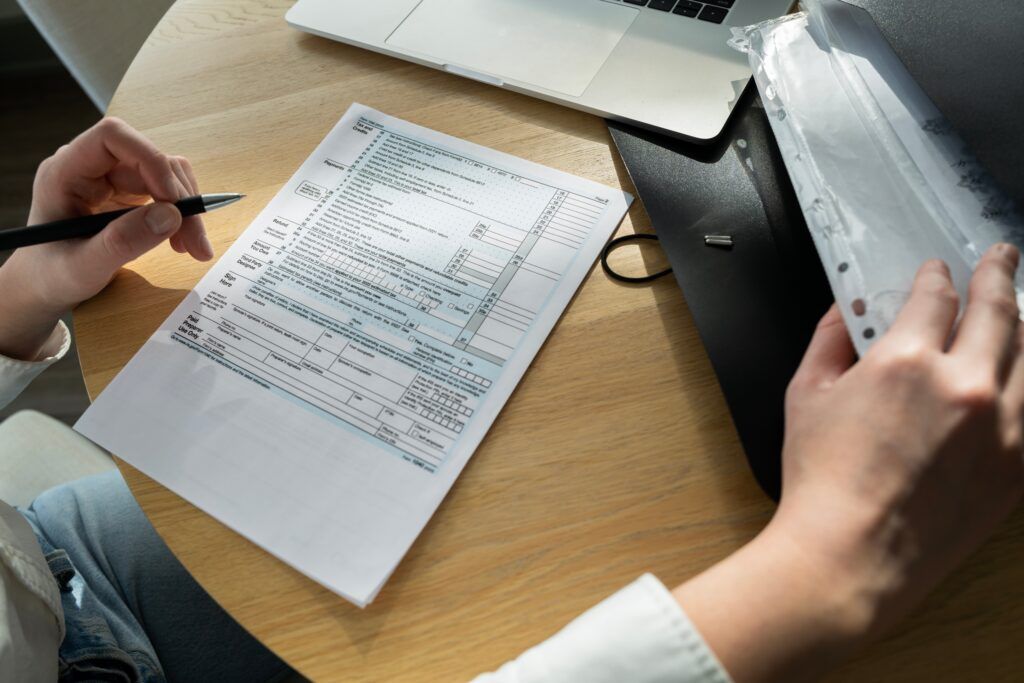3 Tax Implications of Becoming an Independent Contractor

- If you're ready to take the plunge and launch your career as an independent professional, it's critical to understand the tax implications of becoming an independent contractor.
- While your employer was obligated to withhold federal income, Social Security, and Medicare taxes from your pay, as an independent professional, you are responsible for making these payments yourself.
- To stay on top of your tax obligations and keep your business finances in order, use these three tips.
If you’re ready to take the leap and start your career as an independent professional, there are a few key steps to take to build a successful business. Understanding the tax implications of becoming an independent contractor is an important part of your financial preparation. While your employer was required to withhold federal income, Social Security, and Medicare taxes from your payroll, it’s up to you to make these payments yourself as an independent professional.
While taxes can be an intimidating topic to tackle, it is important to stay on top of your payments to avoid fines, keep your finances organized, and take advantage of eligible deductions for. Follow these three tips to stay on top of your tax obligations and keep your business finances in order.
1. Know Your Responsibilities
If you work as an independent contractor, sole proprietor, or run your own business such as an LLC or partnership, you are required to file an annual tax return as well as pay estimated taxes on a quarterly basis. This helps to eliminate a big tax burden at the end of the year both for you and for the government. Because you are both an employer and an employee, you are subject to paying self-employment tax (Social Security and Medicare) as well as income tax.
Quarterly payments typically fall on April 15, June 15, September 15, and January 15 of each year. Use Form 1040-ES, Estimated Tax for Individuals to figure out what you owe and use EFTPS: The Electronic Federal Tax Payment System to make these payments. For your annual return, you’ll use Schedule C (unless you are eligible to file Schedule C-EZ) to report income or loss from your business, and file Schedule SE (Form 1040 or 1040-SR), Self-Employment Tax to report your Social Security and Medicare taxes.
2. Take Time to Manage Your Records
Knowing exactly how much tax you owe each quarter can be a bit of a betting game. If you underestimate, you’ll owe more money when you file your annual return. If you overestimate, you’ll likely get a refund, and if you choose not to pay quarterly taxes you may be subject to penalties. As a general rule of thumb, pay quarterly taxes if you expect to owe more than $1,000 in taxes over the course of a year.
If you’re new to self-employment, you may want to consider working with a tax advisor to calculate what is best for your particular situation. If you are familiar with the process, take a look at your tax returns from last year to get an idea of what you should be paying quarterly. Consider paying slightly more to avoid underpayment.
Keeping track of your bills and payment history is another key part of the process. Being able to easily refer to your income records will help to streamline your tax filing process and make it easier to estimate the taxes you will owe for the following year. As part of your record keeping, save receipts and keep detailed notes of things like business travel, transportation expenses, and insurance costs so you can take advantage of available deductions.
3. Learn the Deductions You’re Eligible For
As an independent contractor, you’re eligible to deduct a number of qualified business expenses. These deductions include certain tax-deductible retirement plans, phone and internet expenses, education used to enhance your job-related skills (think additional certification, books, or subscriptions to professional publications), insurance premiums, marketing and advertising costs, and a home office deduction.
While these deductions are one of the biggest benefits of going independent, be sure to keep documents of all business spending and expenses. If you are ever audited, you’ll need this information. Keep records of the deductions you plan to take along with receipts, pictures, or written notes to avoid any red flags. More information on business-related tax deductions can be found on the IRS website.
The information provided in the MBO Blog does not constitute legal, tax or financial advice. It does not take into account your particular circumstances, objectives, legal and financial situation or needs. Before acting on any information in the MBO Blog you should consider the appropriateness of the information for your situation in consultation with a professional advisor of your choosing.
Categories
Subscribe to the Insights blog to get weekly insights on the next way of working
Join our marketplace to search for consulting projects with top companies
Learn more about MBO
Learn how to start, run and grow your business with expert insights from MBO Partners
Learn how to find, manage and retain top-tier independent talent for your independent workforce.
MBO Partners publishes influential reports, cited by government and other major media outlets.
Research and tools designed to uncover insights and develop groundbreaking solutions.


